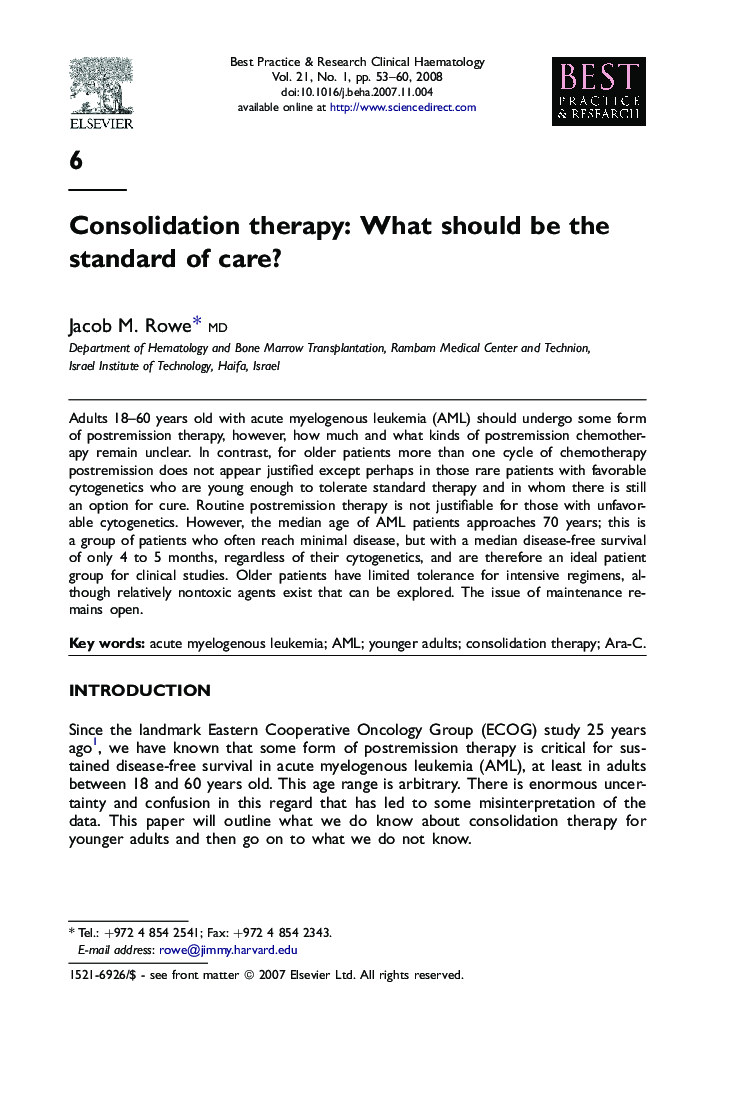| Article ID | Journal | Published Year | Pages | File Type |
|---|---|---|---|---|
| 2100271 | Best Practice & Research Clinical Haematology | 2008 | 8 Pages |
Adults 18–60 years old with acute myelogenous leukemia (AML) should undergo some form of postremission therapy, however, how much and what kinds of postremission chemotherapy remain unclear. In contrast, for older patients more than one cycle of chemotherapy postremission does not appear justified except perhaps in those rare patients with favorable cytogenetics who are young enough to tolerate standard therapy and in whom there is still an option for cure. Routine postremission therapy is not justifiable for those with unfavorable cytogenetics. However, the median age of AML patients approaches 70 years; this is a group of patients who often reach minimal disease, but with a median disease-free survival of only 4 to 5 months, regardless of their cytogenetics, and are therefore an ideal patient group for clinical studies. Older patients have limited tolerance for intensive regimens, although relatively nontoxic agents exist that can be explored. The issue of maintenance remains open.
